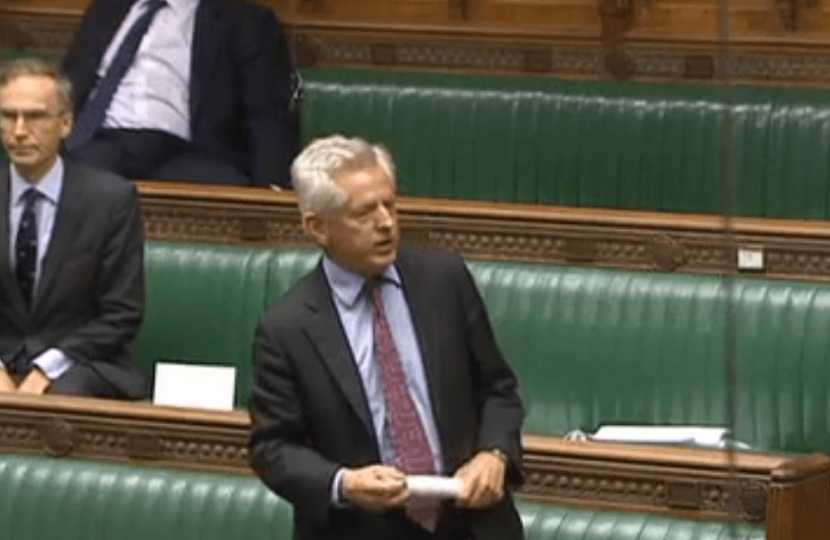
Speaking in the House of Commons debate on the Domestic Gas and Electricity (Tariff Cap) Bill last night, Gloucester MP Richard Graham said the Bill’s cap on Standard Variable Tariff (SVT) for 20 months would give certainty and lower energy prices for about 25,000 residents in Gloucester.
“My constituents who are on SVTs are among 11 million customers in the UK who’ve stuck with their energy provider,” Richard said: “they don’t shop around or switch, and the price for their loyalty has been paying about £300 more every year than they should have to. Other customers, including the most vulnerable, should all be on Fixed or Pre-paid tariffs. This Bill provides a temporary absolute cap on SVTs from the winter of 2018 for 20 months to help.”
The city MP highlighted that many of Gloucester’s residents are working long hours - Gloucester has the fourth highest employment rate of any city in the country – for modest salaries. “Energy bills of around £1,135 a year,” he said, “are often the biggest single cost for families after council tax. The Energy Cap Bill is specifically for them.”
There was cross party support for the Bill’s Second Reading, but Richard said that the opposition policy remained nationalising all the energy companies, at a huge cost to the taxpayer and public finances. Gloucester’s MP said those who thought nationalisation was the answer were wrong: “when energy companies were owned by the state, there were twice as many power cuts as there are now, and energy prices fell after privatisation.”
But at the same time Richard said we had to learn the mistakes of the past: “energy prices rose very fast when Labour was in power, and especially between 2000 and 2008, due to weak control from the regulator.” He argued that even though energy prices in the UK remain significantly lower than average continental European prices, the key to good value was for the government, the regulator and energy companies to work for customers. “The Bill sorts one major issue for 11 million people—the standard variable tariff—for now, and allows the Government and the regulator to focus on how in the longer term we use innovation, better smart meters, better and easier ability to switch, and a greater use of renewables to ensure that the energy market works as best it can.”
Richard Graham signed a cross party letter to the Prime Minister in September calling for the energy cap, after the Conservatives pledged to look at energy bills in their recent manifesto. The Bill follows this and an investigation by the Competitions and Markets Authority (CMA) that highlighted that customers of the Big 6 energy suppliers pay £1.4 billion more a year than they would if the market was truly competitive. The Bill therefore places an obligation on Ofgem to put an absolute cap on SVTs as soon as possible that will continue to support market competition.
The government aims to bring the Bill through Parliament before the summer so it can be implemented in time for next winter.